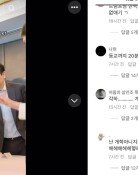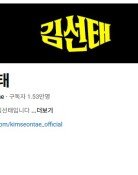[Diplomatic News] SNU-LG Press Course Helps Foreign Journalists Experience Korea
[Diplomatic News] SNU-LG Press Course Helps Foreign Journalists Experience Korea
Posted September. 16, 2005 06:34,
To Merazi Dube, a reporter for Star TV India, Korea was just a synonym for LG, Samsung, and Hyundai one month ago because all he knew about Korea were the names of companies that had entered the Indian market.
Dube who has finished a four-week course offered by the SNU-LG Press Fellowship 2005 yesterday, a program that trains foreign journalists to become more familiar with Korea co-organized by the LG Sangnam Press Foundation and the Press Information Institute of Seoul National University, is scheduled to leave Korea on September 17. However, he said that he now had a completely different image on Korea from what he had before.
I thought that LG was only involved in the electronics industry, but it also produces chemical products, and I thought Samsung was a cellular phone producer, but it also constructs apartment buildings. I also had a chance to learn about chaebols in Korea. I also learned that Koreas systems were very efficient after seeing its transportation system and service system in restaurants. I feel like I am now collecting pieces of things that were dispersed before, said Dube.
Apart from this, he had also a special experience that helps him connect the present time with the past.
A Korean government official who visited India two years ago told him about Princess Heo Hwang-oh, a princess of the Ayuttha Kingdom in India, who married King Suro of ancient Gaya in Korea.
Thus, aside from program schedule, he visited Gimhae, Gyeongnam (a former territory of ancient Gaya). I have never heard of Empress Heo in India. Despite this, I felt touched when I stood in front of her tomb, said Dube.
We have a city called Gaya in the Viha region of the northern part of India, and we call mother Eomma like Koreans do. We also make deep bows as signs of respect to parents and grandparents like Koreans. India and Korea have a lot in common like this. It is very interesting, said Dube.
Other foreign participants in the class were working to find connections between Korea and their countries like Dube.
Thai Tan, a reporter from the Saigon Times in Vietnam, had interviews with people in the entertainment industry in Korea such as actors, models, and their managers. Expressing his strong intention to discover the origin of the Korea Wave that is sweeping across Asia, he said, When I come back to Vietnam, I will report on the trends of Koreas entertainment business such as stories about actors and new models who have recently gained popularity.
Meanwhile, Eden Estopase, a reporter for the Philippine Star, met Filipinos who were living in Seoul.
I covered a story about the accessibility of the Internet in Korea by reporting on how Filipinos in Korea keep in touch with their relatives and friends in Philippines through the Internet and how much they use the Internet. In fact, I was surprised at the high distribution rate of the Internet in Korea, said Estopase.
Eight foreign journalists from Vietnam, Philippines, China, Russia, Uzbekistan, and so on participated in the program. This program, which started in 1997, has offered the course to about 90 journalists from 62 newspapers and other mass media companies of 14 countries.
Yi-Young Cho lycho@donga.com







